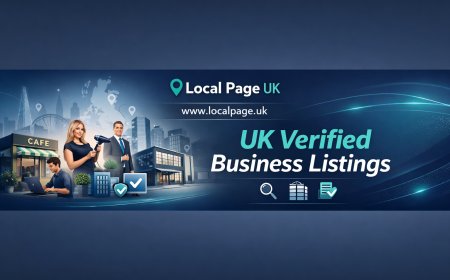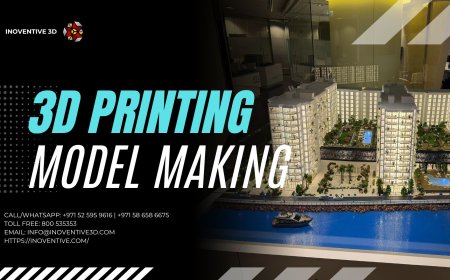Dubai Real Estate: Smart Communities, Sustainable Futures
When most people think of Dubai, they picture iconic skyscrapers, man-made islands, and architectural marvels that have redefined what a modern city can look like. But beneath the glamorous skyline, a quieter transformation is underwayone that may ultimately prove to be the citys most important legacy.
This is the era of the smart, sustainable community: neighborhoods designed to conserve resources, embrace technology, and create healthier lifestyles for the people who call them home.
If you are considering investing in Dubai real estate today, you are not simply buying property; you are buying into a new model of urban living that blends efficiency, environmental responsibility, and long-term value.
The Evolution from Prestige to Purpose
A decade ago, the Dubai property market was largely defined by prestige. Developers competed to build taller towers, larger villas, and more lavish amenities. While these features are still celebrated, the priorities of investors and residents have shifted.
Today, buyers want more than luxurythey want sustainability. They expect neighborhoods to be walkable, buildings to conserve energy, and public spaces to promote wellness. Smart technologies and green certifications have moved from nice-to-have extras to non-negotiable features.
This evolution is not simply about trend-following. It is about future-proofing investments in a city that intends to lead the world in innovation and environmental stewardship.
A Master Plan for a Sustainable City
Dubais commitment to sustainability isnt marketing spinit is written into its development roadmap. The Dubai 2040 Urban Master Plan sets ambitious goals:
-
60% of the emirate to be comprised of natural reserves and green spaces
-
New developments concentrated around public transport nodes
-
10% of energy from renewable sources
-
Mandatory sustainable building standards for new projects
These targets are already shaping some of the citys most promising communities, which integrate low-carbon infrastructure, smart grids, and community-driven design.
What Makes a Community Smart?
Smart communities in Dubai go far beyond Wi-Fi in the lobby. They rely on integrated digital systems that enhance comfort, efficiency, and security:
-
Smart Home Automation: Lighting, air conditioning, and appliances can be managed via mobile apps.
-
Energy Monitoring: Residents track usage in real-time to reduce costs.
-
Predictive Maintenance: Sensors detect leaks or equipment failures before they become major problems.
-
Community Platforms: Apps allow neighbors to book amenities, pay fees, and stay connected.
-
Electric Vehicle Infrastructure: Charging stations are built into parking facilities.
These features not only appeal to tech-savvy residents but also drive higher occupancy and rental yields.
Sustainability That Goes Beyond Buzzwords
Dubais developers are investing heavily in sustainability measures that directly impact residents wellbeing and operational costs:
-
District Cooling Systems: Centralized cooling cuts energy consumption.
-
Greywater Recycling: Treated wastewater irrigates landscaping.
-
Green Roofs and Vertical Gardens: Lower heat absorption and improve air quality.
-
Solar Panels: Supplement electricity and reduce reliance on traditional grids.
-
BREEAM and LEED Certifications: Proof of adherence to international sustainability standards.
These measures translate to lower long-term maintenance costs and higher resale values, making them as financially compelling as they are environmentally necessary.
Communities Leading the Way
Several developments stand out as models for smart, sustainable living in Dubai:
-
Dubai Hills Estate: A master-planned community with solar-powered streetlights, extensive cycling paths, and water-saving landscaping.
-
Sustainable City: The UAEs first net-zero energy development, where villas produce more energy than they consume.
-
Dubai Creek Harbour: Designed to integrate renewable energy, smart waste management, and walkable urban planning.
-
Meydan: Combines smart infrastructure with green building practices and expansive parks.
These communities are more than lifestyle destinationsthey are proof that Dubais developers are serious about redefining urban living.
The Investor Perspective: Why It Matters
Many investors wonder whether these sustainability measures justify the cost. The answer is a resounding yes:
-
Stronger Demand: Tenants increasingly prioritize energy efficiency and smart features.
-
Higher Occupancy Rates: Properties in sustainable communities tend to stay rented.
-
Future Regulatory Compliance: As sustainability mandates tighten, early adopters avoid costly retrofits.
-
Premium Resale Values: Buyers are willing to pay more for properties with proven environmental credentials.
For investors committed to long-term wealth preservation, sustainability isnt optionalits essential.
Meeting the Needs of a New Generation
Millennials and Gen Z are emerging as a powerful force in the Dubai real estate market. They value transparency, technology, and social responsibility. They expect their homes to align with their values, not just their budgets.
Smart communities deliver on these expectations by:
-
Reducing carbon footprints.
-
Supporting healthier lifestyles through walkability and green spaces.
-
Empowering residents with data and control over their environment.
In this way, sustainable real estate becomes a magnet for a generation that wants to feel good about whereand howthey live.
Reducing Operational Costs
One of the most overlooked benefits of smart, green communities is the impact on ongoing expenses. In Dubais climate, energy and water costs can be substantial. Smart systems and sustainable construction dramatically reduce these bills:
-
District cooling alone can lower energy use by 50%.
-
LED lighting and efficient appliances can cut power consumption by 3040%.
-
Water recycling and low-flow fixtures can shrink water usage by up to 35%.
These savings improve net rental yields and make ownership more affordable over time.
Dubai UAE Real Estate as a Model for Tomorrow
When you look at dubai UAE real estate in this context, it becomes clear that sustainability and smart infrastructure are not simply marketing strategiesthey are the blueprint for the citys next 50 years.
Investing in these communities means aligning your portfolio with a future that is inevitable. As environmental regulations tighten and consumer expectations rise, properties that deliver sustainability will outperform those that dont.
Conclusion: Building a Legacy That Lasts
Dubai has proven time and again that it can reinvent itself to stay ahead of the curve. From its origins as a trading outpost to its rise as a global tourism and finance hub, the city has always embraced change. Today, that change is about sustainability, smart living, and building communities that will serve generations to come.
For investors, buyers, and residents alike, this is an opportunity to participate in a transformation that goes beyond profit. Its about creating value that enduresfinancially, socially, and environmentally.
In a world where every investment is scrutinized for its impact, Dubai is showing what it means to build a cityand a legacythat stands the test of time.


































